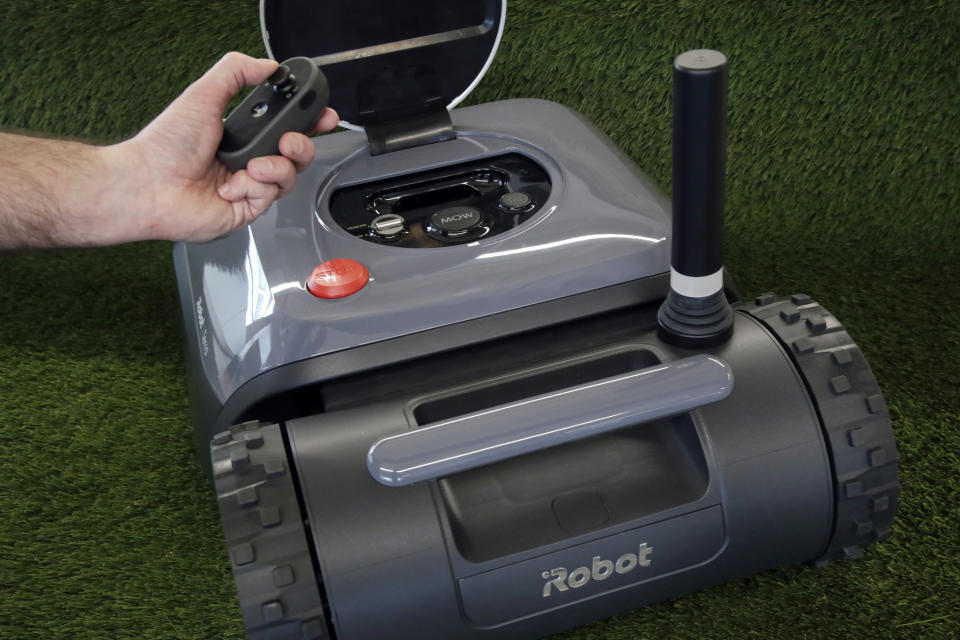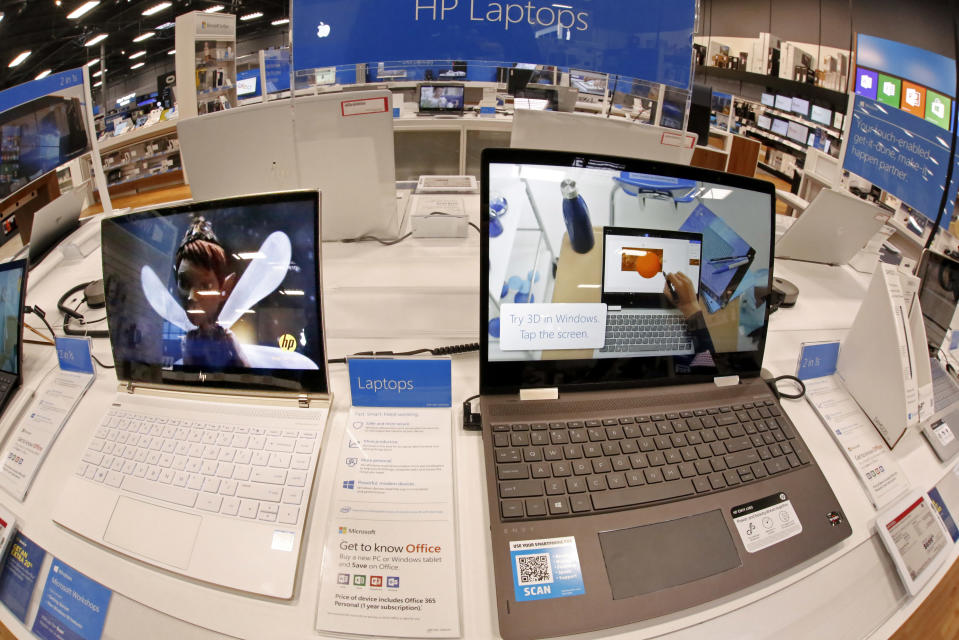Consumer tech groups warn tariffs will hamper innovation
Consumer electronics companies and technology groups are sounding the alarm that additional tariffs on imports from China will hamper U.S. innovation — and give foreign competitors an edge.
In public hearings on the next round of potential tariffs on $300 billion in Chinese goods, the companies urged trade officials to exclude their products from additional tariffs.
Roku, iRobot, Best Buy, Element Electronics and the Entertainment Software Association all testified on Monday.
Colin Angle, the CEO of iRobot, said his company is already feeling the impact of tariffs on its robotic vacuums. He said slapping additional tariffs on its robotic mops and lawnmowers will “exacerbate” the harm being done to the company.

Angle says iRobot will have to raise prices again, which will slow sales and ramp up uncertainty. The company will not be able to increase its research and development spending, which he says will undermine iRobot’s ability to maintain an edge over its Chinese competitors.
“Imposing these tariffs will bring disproportionate harm,” Angle said.
While the companies agreed on the administration’s goal in cracking down on unfair trade practices like forced technology transfer and intellectual property theft, they argued tariffs won’t necessarily help the situation.
Best Buy’s Chief Merchandising Officer, Jason Bonfig, told the officials the proposed tariffs consumer electronics would have “minimal impact on China,” but “will only serve to maximize pain on U.S. consumers.”
Best Buy is asking the office of the United States Trade Representative to exclude smartphones, smartwatches, fitness trackers and other consumer electronics from the next round of tariffs.
Bonfig argued that while some consumer electronics manufacturing has been moving outside of China, it’s a “multiyear effort” and cannot be done any faster, “even in the face of additional, onerous tariffs.”
Damage to US innovation
Roku told the panel there was no valid reason to target Roku products. Mustafa Ozgen, a Roku vice president, said the company has arrangements with its manufacturers that protect its intellectual property — and he says those agreements are working well.
He said 25% tariffs will lead to a decline in Roku’s sales and will ultimately have a detrimental impact on American leadership in the technology space.
“Targeting Roku is not going to help U.S. manufacturing, but almost certainly hurt U.S. innovation,” said Ozgen.

The Entertainment Software Association also said tariffs on video game consoles, controllers and other accessories will drive up prices — which will slow the adoption of new technology by consumers, and eventually mean less money to invest in research and development.
“Tariffs could potentially rupture this virtuous cycle of continuous innovation by reducing the incentive for investment in next-generation technologies,” Stanley Pierre-Louis, president and CEO of ESA.
Element Electronics testified that it’s the only domestic television manufacturer in the United States, but if tariffs on LCD panels go into effect it would have to shut down its South Carolina factory.
‘You have to fix this’
While President Trump has pressured companies to move production to the United States to avoid tariffs and create jobs, the tariffs would have the opposite effect, David Baer, general counsel for Element Electronics, said.
“We’re doing exactly what the administration is asking,” said Baer. “Because of the actions of the government, Element may be forced to close our U.S. factory in favor of a foreign factory. You have to fix this.”
Baer said the new tariffs would make it too expensive to import components and build TVs in the U.S. — meaning everyone at the South Carolina plant would lose their jobs.
Other players in the technology and electronics sector are also set to testify throughout the public hearings, including the Consumer Technology Association, HP and Fitbit.
In prepared remarks, CTA told USTR that tariffs could mean the difference between turning a profit and going out of business, for small and medium-sized companies.
“Tariffs on technology products are a tax on American innovation. They choke U.S. leadership and cause cuts to U.S. jobs in the technology sector,” the CTA said in its prepared remarks.
Jessica Smith is a reporter for Yahoo Finance based in Washington, D.C. Follow her on Twitter at @JessicaASmith8.
Businesses head to DC to make their case against tariffs
CEOs say trade uncertainty is biggest concern for US economy
CEO optimism drops for fifth straight quarter: survey
Uber CEO blames Trump’s ‘tariff wars’ for disappointing IPO
Read the latest financial and business news from Yahoo Finance
Follow Yahoo Finance on Twitter, Facebook, Instagram, Flipboard, LinkedIn, YouTube, and reddit.
